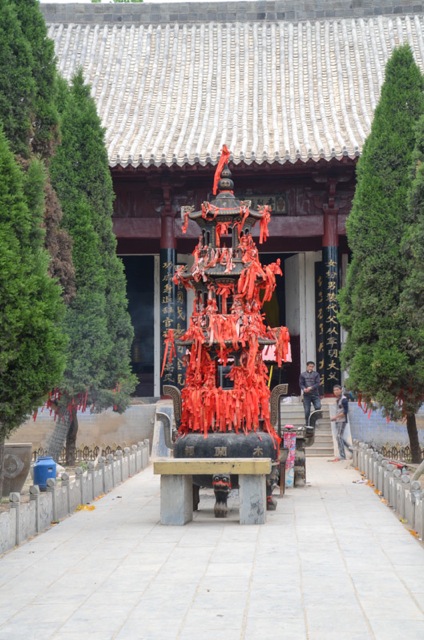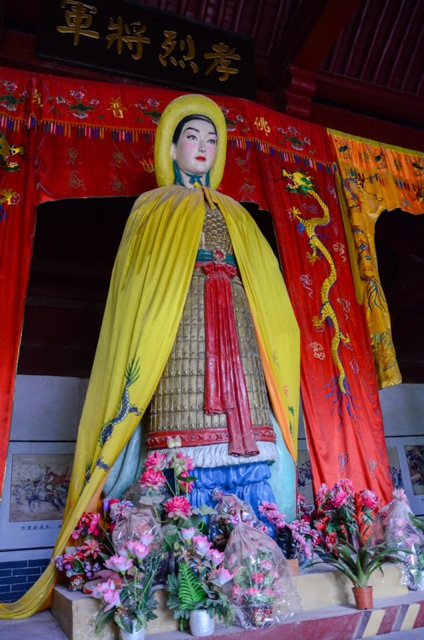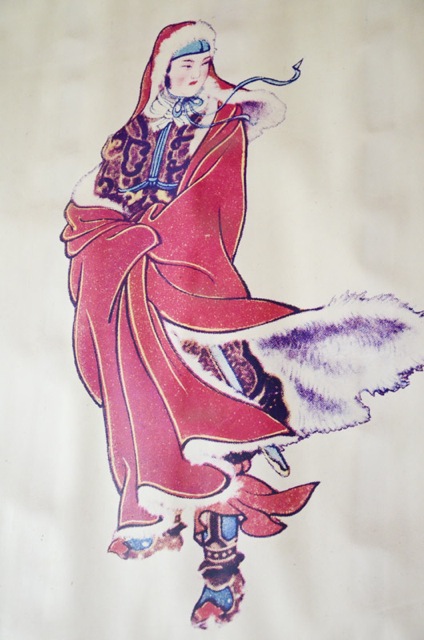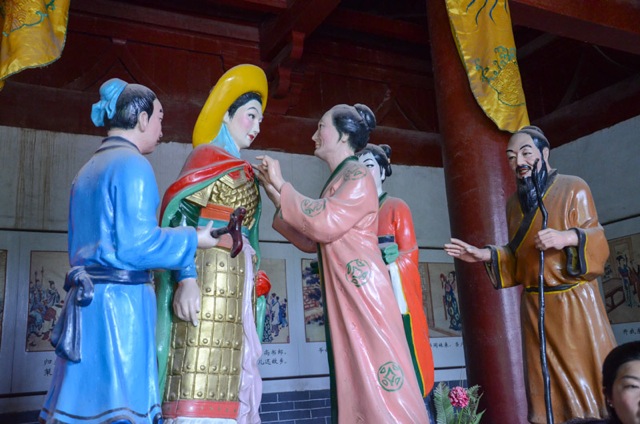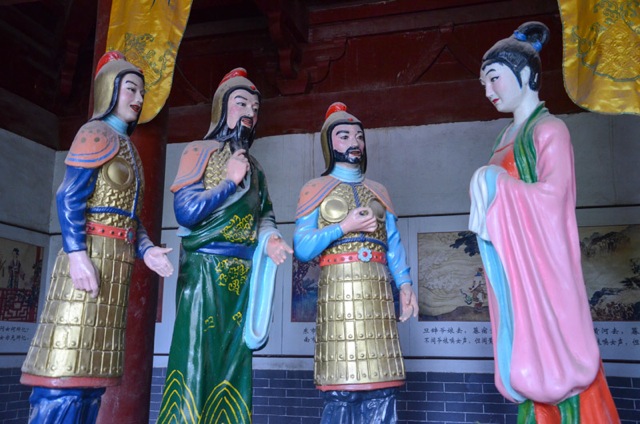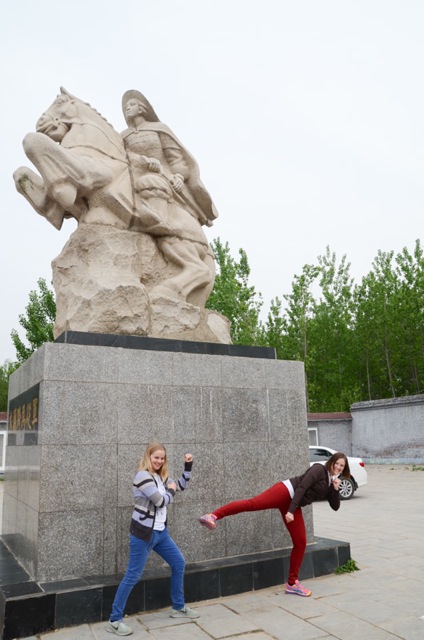Disney came out with the movie Mulan around the same time that I started taking Tae Kwon Do classes. I was well past the princess stage in my life and quickly latched onto this dynamic character who just happened to practice martial arts like yours truly. I even threw myself a Mulan themed birthday party that year (Yes, I was entirely too old to be this obsessed with a Disney movie. I pretended it was ironic at the time, but yeah, I was totally into it.). I remember reading that the movie was based on a Chinese story but knew little else at the time. Year passed and my obsession with Mulan faded, though I might still have my Mulan and Shang Barbie dolls. Shut up.
Shortly after moving to China, I made Matthew watch Mulan. It was amusing to see our new country through the eyes of Disney and yes, I still found the music catchy. Though the movie also made us cringe at some of the poorly pronounced Chinese names.
So when our hosts in Henan announced we were visiting the Hua Mulan Temple, this girl pretty much lost it. I was beyond excited.
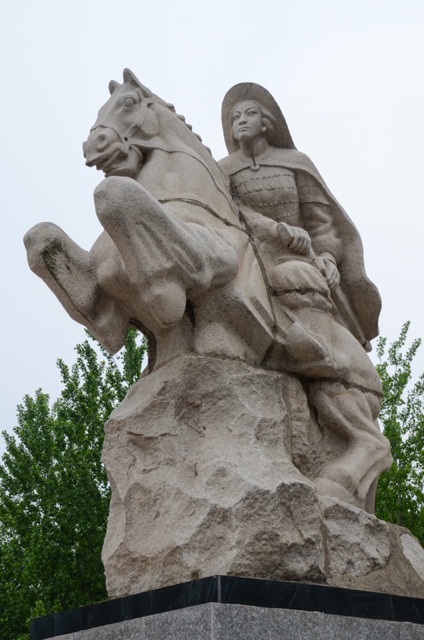
For those of you unfamiliar with the story of Mulan, here is a refresher for you, based on the famous poem Ballard of Mulan.
Mulan’s father was a soldier and raised Mulan like a boy. She not only learned weaving and embroidery from her mother, but also practiced martial arts, archery, and fencing with her father.
The emperor sent out a decree to form an army and draft recruits from all over the land to put down the hostilities along the northern borders. According to the decree, all male adults were to register, and that included Mulan’s elderly, ailing father. As Mulan thought of her father going to war, she knew he would likely die. But if he refused to go, he would be branded as being unpatriotic. Mulan’s brother was still too young to enlist, so Mulan made up her mind to disguise herself as a man, and take her father’s place in the army.
For 12 years Mulan served in the army and received numerous honors. After the war ended, the emperor wanted to award her an official position, but she declined and asked for a good horse instead as she wished to return home to her family. Her wish was granted, and the emperor also sent an envoy to escort her home. Her parents were overjoyed to learn of their daughter’s return, but when they saw a general riding toward them, they didn’t recognize their own, long awaited daughter.
After Mulan changed into her female attire, it was her comrades' turn to be stunned, for the warrior who had fought side by side with them for 12 years, turned out to be a woman.
While the famous poem ended on a high note, other versions of the story have a less fairytale ending for Mulan. In those stories, when Mulan refused the high post offered by the emperor, he had her detained at the court. To express her strong protest, she hung herself. In author Chu Renho's novel, Sui Tang Yanyi, the emperor summons her to be his concubine. Again, she hangs herself in protest. Disney clearly went with the poem's ending.
So was the temple all I hoped it would be? Not really. Apparently the original temple was quite grand with over 200 buildings covering an area of 10,000 square meters. But that temple was destroyed in the 1940's and now only a small memorial sits in its place. While it did not quite live up to my expectations, I did enjoy visiting the hometown of one of my childhood heroes. And I got to take this picture.


